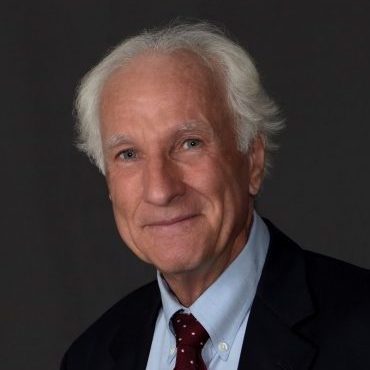 Leaving the Association of University Technology Manager’s annual meeting I had a topic in mind for this column but that changed during the taxi ride to the airport. I heard a story which haunted me so much the previous idea paled in comparison. So this is not about intellectual property or tech transfer. Rather it brought to mind Ernest Hemingway’s saying: “Grace under pressure is the measure of a man.” If you agree with Hemingway then perhaps the story a cab driver told me during our 30 minute ride will be of interest.
Leaving the Association of University Technology Manager’s annual meeting I had a topic in mind for this column but that changed during the taxi ride to the airport. I heard a story which haunted me so much the previous idea paled in comparison. So this is not about intellectual property or tech transfer. Rather it brought to mind Ernest Hemingway’s saying: “Grace under pressure is the measure of a man.” If you agree with Hemingway then perhaps the story a cab driver told me during our 30 minute ride will be of interest.
The greatest benefit of attending a conference is that you meet people you would otherwise not run into that inspire you. Being invited to kick off the AUTM annual meeting was a real honor. We had a great discussion about the importance of the Bayh-Dole Act and a strong patent system, why both are under attack and what must be done to rebuff the critics. It was particularly gratifying to see that many in the audience who weren’t even alive when the law passed 37 years ago understand the torch is being passed and it’s their turn to stand and deliver.
I met the new Under Secretary of Commerce, Dr. Walter Copan, who leads the National Institute of Standards and Technology and is the first high level official at the Department with hands on expertise in technology transfer and a vision to increase the “return on investment” for the U.S. taxpayer. I talked to Dean Kamen, an astounding entrepreneur and one of the most incredible people I have ever met. There were attendees from developing countries working diligently for needed policy changes to unleash the untapped creativity essential for raising living standards. I met a university official afire with determination to expand a highly effective program she’d developed to nurture women entrepreneurs. As I was leaving the hotel for home there were lots of moments to savor. But as I jumped into an early morning taxi to the airport, I was about to meet a man whose story shook me to the core.
The hotel bellman said if I didn’t mind sitting in the front I could share a ride with two other folks already in the cab. That was fine with me. As we pulled out, the driver said hello and being intrigued by his accent, I asked where he was from. He replied: “Iraq.”
Asked if things were improving over there he said it was still pretty bad. He got out with his family 10 years ago but his aged father was still there along with his sister. When I asked if he ever returned to visit, he said that he couldn’t go back because he’d been kidnapped and was now a marked man. I asked if he minded talking about the experience. This is the story he told in a calm, gentle voice as we drove along.
The driver was from an educated family and had studied abroad, obtaining a degree in finance. After the fall of Saddam Hussein, he’d been recruited to work for an international aid agency trying to rebuild the country. Because people with high profile jobs and steady incomes were in constant danger, he was provided with body guards. One day his daughter in college asked if he could stop on the way home to get a dictionary. There was a well known bazaar of booksellers in a safe neighborhood so he told the body guards to wait while he ducked in to buy the book. As he walked out of their sight, two men rushed up from behind hitting him in the back of the head with a pistol, knocking him to the ground in a bloody daze. Even though the bazaar was crowded, being unarmed there was nothing anyone could do to help. He was grabbed, rushed to a car, bound, blindfolded and thrown into the trunk. The kidnappers had been trailing him for days, waiting for their chance. It only took them a few minutes to make the snatch. On the long, bumpy ride he could smell the dust and knew he was being taken out of Baghdad. He also knew he was in very serious trouble.
Apparently, kidnapping protocols in Iraq are well established. Lists of potential victims whose families are believed to have enough money to pay are compiled and hit men are assigned to track them down. Victims are kept in remote safe houses no more than 72 hours. If the ransom isn’t paid by then, they are killed and beheaded with the body parts thrown out in different parts of town. When found they are taken to collection points where families go to see if they can identify missing loved ones from whatever has been recovered.
My driver was tortured all day. He turned and showed me where they had drilled his teeth to inflict the most pain. His father could hear his screams in the background during the call demanding ransom. There was no doubt they meant business. His father spent his entire life savings to spare his son, who was driven 50 miles out of town and dumped in the middle of the road. His only hope was that someone would realize what had happened, help him and contact the family to pick him up, which luckily, they did.
I asked if he ever saw the kidnappers. The answer was that if the blindfold is removed, you are about to be killed. I asked if he was Sunni or Shia. He said that he was both as his father and mother were from different sects. Iraqi’s are issued ID’s to show their religious affiliation, so he received two cards. Much depended on presenting the correct ID at the right checkpoint. If you get it wrong you could disappear.
He smiled sadly and said: “We were living between three deadly snakes: the Sunni gangs, the Shia gangs and the terrorists. Any one of them could bite at any time.”
After the kidnapping he needed to leave Iraq as quickly as possible so the US government offered him, his wife and three daughters asylum. His daughters were about to finish college in Iraq and struggled to adopt to the US educational system but all have since graduated from college. The oldest just received her master’s degree. He was very proud of his girls’ determination to succeed in their new land. They were all married to men whose families he had known in Iraq and he now has two grandchildren. However, like many formerly successful people forced to flee their homeland to save their lives, his own plight had been much harder. Even though he was experienced, is obviously cultured, and speaks excellent English, he is 62 years old. He kept hearing that he was overly qualified for the available accounting jobs, perhaps a pretense to hire younger, cheaper workers. Having been raised in a respected family in Iraq, he had to face the reality that his professional life was over. That clearly pained him, as it reflected on the honor of his family. But there was nothing to be done but to humbly start over, so he bought a taxi. It was hard work and the hours were long, but he spoke without a trace of self pity.
As we pulled into the airport he said: “My friend, learn to face your problems with calmness and dignity. Never compromise your principles. Take the cards you have been dealt and play them as wisely as you can.” I shook his hand and left with a lot to think about.
Perhaps the next time we confront unfair attacks, either personal, professional or political his words will resonate. He met challenges most can’t imagine but as a person with a strong moral center, they could not embitter him. In all probability, we’ll never meet again but I’m grateful that for a few minutes our paths crossed. Thank you, my friend. That was one ride I’ll never forget.

![[IPWatchdog Logo]](https://ipwatchdog.com/wp-content/themes/IPWatchdog%20-%202023/assets/images/temp/logo-small@2x.png)

![[Advertisement]](https://ipwatchdog.com/wp-content/uploads/2024/04/Patent-Litigation-Masters-2024-sidebar-early-bird-ends-Apr-21-last-chance-700x500-1.jpg)

![[Advertisement]](https://ipwatchdog.com/wp-content/uploads/2021/12/WEBINAR-336-x-280-px.png)
![[Advertisement]](https://ipwatchdog.com/wp-content/uploads/2021/12/2021-Patent-Practice-on-Demand-recorded-Feb-2021-336-x-280.jpg)
![[Advertisement]](https://ipwatchdog.com/wp-content/uploads/2021/12/Ad-4-The-Invent-Patent-System™.png)







Join the Discussion
8 comments so far.
EG
February 28, 2018 08:35 amHey Joe,
Thanks for recounting this story. Absolutely jaw-dropping. And a I reminder that we shouldn’t ever take the rights in our Constitution for granted.
Shimon
February 28, 2018 06:02 amI respectfully disagree.
In much of the 3rd world and Middle East, the name of the game is survival (not revenge).
I learned this living under 3rd world kleptocrats and from people who resisted Stalin and suffered torture.
Like Anon says
Once that Might is obtained, then all subsequent views of “Right” – follow… FROM SELF PRESERVATION AND RATIONALIZATION.
Overcoming is possible but requires more than just a “sense of inalienable rights.” It requires incredible personal integrity.
I agree with the cab driver. This is what we all need to work on. It is possible but doesn’t come easy. Don’t be too sure of yourself.
Anon
February 27, 2018 02:30 pm“eight (as opposed to the notion of wrong)”
Should read:
“right (as opposed to the notion of wrong)”
Anon
February 27, 2018 10:10 amI concur with Anon2.
Anon
February 27, 2018 10:10 amMr. Heller @ 2,
From your position of “Might makes Right, that “largely based upon revenge” factor will forever remain a driver to obtaining the Might – through any means.
Once that Might is obtained, then all subsequent views of “Right” – and whether correct or not, eight (as opposed to the notion of wrong) follow merely what those with the Might dictate.
Without the sense of inalienable rights being the horse, and the power to preserve and protect being the cart, one is doomed by putting the cart before the horse.
Despair in such instances is self-imposed (and easily foretold).
Anon2
February 27, 2018 10:08 amDear Mr. Allen:
Inasmuch as the person, his character, and his story have inspired you, your being inspired by his story and your choice to convey this story to others here, bespeaks the substance and quality of your character, which, insofar as can be judged by your all of your output here, is of the highest caliber.
Although startling in its impact and earnestness, this article coming from you, its thoughtfulness and its substance, are not at all surprising.
Edward Heller
February 27, 2018 09:05 amHatfields and McCoys.
The story brings me despair about our ability to ever solve the problems of the Middle East that are largely based upon revenge.
Eric Mirabel
February 27, 2018 07:25 amVery inspiring. We are so lucky to live here